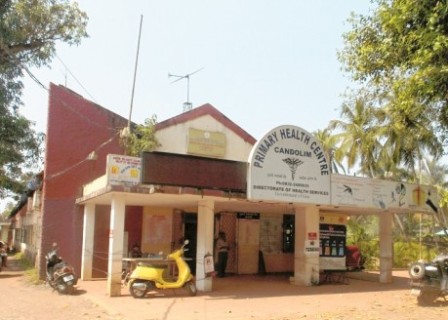-
Abuja Community with over 15,000 residents begs govt
Gbaupe community welcomed its first set of triplet in September 2015 with shock that the babies made it to the world without any functional health facility in the village.
Despite having no less than 15,000 residents, the agrarian community had existed for decades without a public health facility, residents who spoke with Nigeria Health Online lamented.
“The truth is that herbal doctors are popular here because they are the ones providing health services. And, for four years I have lived here, their number has increased because they have good patronage,” Miss Agnes Auta, a resident of the community said.
“Women die here sometimes, including children. Pregnant mothers and ailing children who could not receive needed medical attention are the most affected. The truth is that there are about two private clinics, but for me they are very substandard and I doubt if they have any licence to operate.
“It is always easy for clinics such as these ones to operate in this kind of environment because this community is too remote. I am not condemning them, but they may not be the best option if at least a government clinic is in this village. A major practice here is self-medication. Many residents are their own physicians here. They run to the bush when they are sick and look for herbs to take care of themselves. If you never came here, you wouldn’t know such a community like Gbaupe is exists with these many people,” Auta added.
Gbaupe is agrarian community bubbling with life, except that it lacks power supply and other infrastructure expected to be enjoyed by residents of a nation’s capital. The community sits between Aco Estate along the Airport Road and Kuje community.
It is estimated to be about 20 kilometres from each of both communities. Gbaupe is under Kuje Area Council, while Aco Estate is under the Abuja Municipal Area Council, AMAC. From Aco Estate, residents who do not have cars of their own take motorbikes whose operators charge between N150 and N200 and cruise through the untarred road leading into the community. Gbaupe is blessed with many mountains which make farming lucrative in the area.
The community has only one primary school, which is crowded with children and insufficient teachers, residents of the community who spoke with our correspondent said.
Giving birth to triplet by Udoka Chidera was one of the few things she would live to remember. The journey was very tortuous for her, and she had wished the community had a health facility that could cater for her at that crucial moment.
Though she was eventually delivered of her babies through caesarian session at the University of Abuja Teaching Hospital, Gwawalada in the nation’s capital, Udoka had two regrets about absence of good primary health care in Gbaupe.
Related Posts
First, she was accompanied by her husband, James Ezeugu, a clergyman, to Kuje primary health centre to register for her antenatal rather than do so in Gbaupe if such a facility existed there. “Transportation cost and risk to the woman and her babies were really challenging for us,” said the father.
Second, given her inability to cope with mounting bill after the birth of her children at the Teaching Hospital, her family moved the babies from the hospital to Gbaupe to continue to take care of them within the limits of their little resources; which was a big risk.
Had she gotten a primary health centre in the village, getting immunization for the children and other needed health care wouldn’t have been done outside Gbaupe. The family had previously been blessed with three children.
Many homes experience what the Ezeugwu’s faced in Gbaupe, but families who have lost relations – mothers and children – pray that government come to their aid and such losses stop in the community.
“I lost my pregnancy while on the motorbike to Kuje Health Centre,” said Halima Buraimoh. “It was such a great loss I don’t pray that anyone experience in their lifetime. I was very fine before leaving home that morning. But, the motorbike operator sped too much on the bad road to Kuje. I fell and two weeks later, I lost my baby,” she continued.
She appealed to the Federal Capital Territory Administration, whose duty it is to provide health facility in the community, to come to the aid of the village and avert further losses of lives in Gbaupe.
Musa Ahmadu, a native of the village, who claimed to be one of sons of Chief of the community said: “We beg government to help us with hospital here. Though there is a small health centre built for us by the US Embassy in June this year, but it is too small. It can’t take more than 10 women at a time. Gbaupe is a big village, we need big hospital. Government should see the need to help us.”
Speaking further on the cottage clinic provided by the US Embassy, Ahmadu said “the facility is managed by government hospital in Kuje” and that the facility is not independent of its own.
Efforts to reach the chief of the community for comment proved abortive as Musa said his father was outside the village when our correspondent visited.
Kenneth Olumuyiwa who claimed to have lived in the village for three years said the village needed “more than a hospital.”
“Gbaupe is a very peaceful community with mix of people from most tribes in Nigeria. Many of us are here because we cannot afford high cost of living in Kuje and other parts of Abuja. There is no light here, our primary school is very small. And, there is no access to potable water. We need help from government,” he said.


